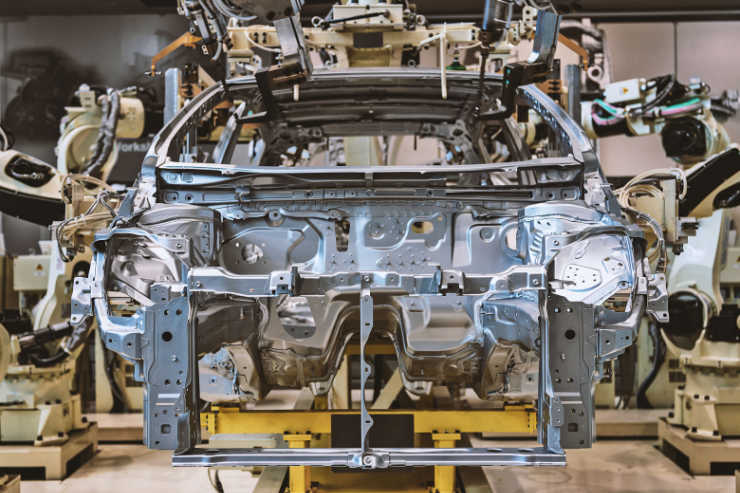
By mTaira @ Shutterstock.com
After enduring years of parts shortages, Japanese automobile manufacturers are speeding up deliveries in response to better parts availability. Hirofumi Yamanaka reports for Nikkei Asia, writing:
Japanese automakers are making progress in reducing delivery times for new cars, thanks to easing chip shortages sparked by the COVID pandemic, according to a recent Nikkei survey of dealerships in Japan.
For mainstay Toyota and Nissan models, delivery times have been cut in half from six months ago, the survey shows.
Take Toyota’s Yaris subcompact. In November, it took up to six months for a vehicle to be shipped after an order was placed. In May, wait times had fallen to three months.
There was less improvement for the Aqua small hatchback, which took up to five to six months for delivery last November. In May of this year, the wait was down to five months.
A similar trend is apparent with new Nissan cars. Delivery times for its Ariya electric sport utility vehicle have fallen by half to six months in May, versus a year six months earlier.
The change in delivery times is uneven and depends on the make and model. Manufacturers have a large backlog of orders and are prioritizing production of big sellers.
For Toyota’s Corolla gasoline-powered sedan, the period from order placement to delivery was three months in November. Now the wait is four months. Minivans such as the Voxy continue to come with a wait of six months or longer.
The story is similar at Honda, as delivery times remain five to six months for N series minicars, six months for the Freed subcompact minivan and six months for the hybrid version of the Fit subcompact. Delivery can take up to a year for the Vezel SUV, the Step WGN minivan and the gasoline version of the Fit.
Options for new cars are installed at dealerships, a process that usually takes about two additional weeks. One Toyota dealer predicts it will be the second half of the fiscal year, which starts in October and runs through next March, before delivery times to return to normal.
Dealers are encouraging customers to place orders earlier than usual. Buyers in Japan typically place orders to coincide with required periodic vehicle inspections. So dealers in Tokyo are giving customers advance notice for inspections a year in advance, instead of the usual six months.
Read more here.
